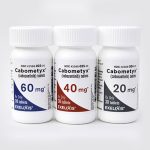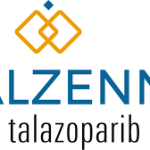Ipsen and Exelixis Set to Transform Prostate Cancer Treatment with Cabometyx and Tecentriq Combo

The pharmaceutical companies Ipsen and Exelixis are exploring the potential expansion of the use of their oncology drug Cabometyx (cabozantinib) in the treatment of metastatic castration-resistant prostate cancer (mCRPC). The companies have released positive top-line results from the phase 3 CONTACT-02 study, which suggests that combining Cabometyx with Roche’s PD-L1 inhibitor Tecentriq (atezolizumab) is more effective than a second round of hormone therapy at reducing disease progression or death for mCRPC patients.
The study has also shown a trend towards improved overall survival with the combination therapy, although further analysis is needed to determine if this difference is statistically significant. If approved, this regimen would offer mCRPC patients a cancer immunotherapy option with broader applicability compared to other treatments like Keytruda (pembrolizumab), which is limited to specific patients with certain genetic mutations.
The combination of Cabometyx and Tecentriq would provide an alternative for mCRPC patients who have already undergone first-round treatments with hormonal drugs like Zytiga, Erleada, Xtandi, or Nubeqa. Currently, patients in this situation usually receive another round of hormonal therapy before transitioning to chemotherapy, with a poor prognosis and life expectancy of less than two years on average.
Neeraj Agarwal from the Huntsman Cancer Institute at the University of Utah, the global lead investigator of the trial, expressed enthusiasm for these positive findings, emphasizing the need for more non-cytotoxic and non-chemotherapeutic treatment options for this patient population.
Howard Mayer, Ipsen’s head of R&D, highlighted the significance of the results, noting that this marks the first instance where a tyrosine kinase inhibitor (TKI) and immunotherapy have demonstrated efficacy in a phase 3 trial for mCRPC.
Ipsen recently received another boost when the U.S. Food and Drug Administration (FDA) granted approval for a treatment targeting the rare bone disease fibrodysplasia ossificans progressiva (FOP).
As the data from the CONTACT-02 trial is promising, the companies intend to engage with regulatory authorities to explore the potential treatment benefits for mCRPC patients, who are in a challenging stage of the disease. Further details and a comprehensive presentation of the data are anticipated to be shared at upcoming medical meetings.





